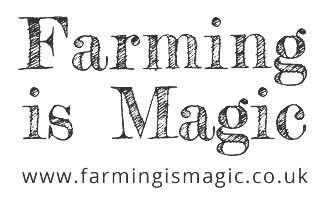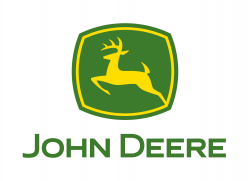LEAF Speak Out: Top Tips
There are lots of different ways to communicate your farming story. Here we have some tried and tested top tips to help host farmers feel more confident and better equipped to communicate with the public.
20 Top Tips on engagement and answering difficult questions
If you are hosting an Open Farm Sunday or farm visit, remember that people have come along to find out about your farm so talk about what you do, what happens on the farm and your real-life experiences. They have come to be entertained, to learn and to have a fun day out.
It’s always tough answering difficult questions about farming and its practices. These top tips aim to give you some guidance on how to deal with difficult questions, as well as challenging misconceptions and sharing interesting information.
These points are relevant to face-to-face as well as online engagement.
Above all, stay calm, tell your story with confidence, and share your passion and enthusiasm for farming. Answer questions honestly and knowledgeably and most importantly, enjoy yourself!
1. Be positive and confident - Talk about all the positive things in farming and the countryside, they will drown out the difficult questions.
2. Be open, cheerful and share your passion for farming and the land.
3. Keep it simple, interesting and honest - Share interesting facts and information, clearly and simply. Be honest but think about how graphic you make what you say.
4. Think about your reaction – be prepared, polite, confident and engaging and whatever you do, don’t be defensive.
5. Why have they asked the question - Remember that the person asking may not have an angle for the difficult question, they may just be interested in the topic, particularly if it’s related to an issue or a misconception that’s frequently aired.
6. Respect that other people have their own perspective.
7. Keep your cool - Whatever you do, don’t get heated, and never get into an argument – this is more likely to happen on social media than face-to-face.
8. Agree to disagree - As with any difficult question, or conversation, you may not reach understanding nor agreement, be prepared for this and find a way to close the conversation in a polite, non-confrontational way, and maybe leave them with a parting thought; e.g. “OK, you’ve left me some interesting perspectives to think about, but can I leave you with just one thing to consider… if we stopped farming this land, and you stopped tending to your garden, what would they both look like in a year or 10 years’ time?”
9. Know your facts, they can clarify, disarm and educate e.g. Why do you take a dairy cow’s calf away so soon? Dairy cows are kept for producing milk and their calves are reared by hand (name of person), just as you may have seen on zoo documentaries. We rear the female calves to join the herd as dairy cows, when they are older, and the male calves are reared by another farmer for the beef market.
10. Choose your words - Think about the words that you use – in farming we are quite comfortable with words like shed, genetics and intensive, but they conjure up the wrong image – instead use building, breeding and housed. Think about the terminology you use, see word replacements link.
11. Use analogy and metaphor to describe how things are or how they work – for example, a healthy soil acts like a sponge, the feed mixer is like a big Kenwood Chef producing a mix that’s not dissimilar to muesli, or farming is life.
12. Don’t use farming jargon - Avoid using farming jargon or terminology e.g. she’s got a swollen bag, we’ll put this animal away, we’ll run them through the crush… they can sound brutal, or they don’t explain what you’re trying to tell them.
13. Who’s asking? Think about who you’re talking to and what their terms of reference are, if you don’t know what they are, start by having a conversation with them, to find out more about them, then tailor the conversation towards their interests/understanding. For example, a keen rose gardener will understand flying pests like aphids, a vegetable gardener will understand crop disease and a mother will understand giving birth and mastitis.
14. Understand the group - For a big group, it’s still important to understand their terms of reference, so ask some pertinent questions to determine their interests/ understanding. For example, has anyone visited a farm before? Are there any keen gardeners on the group? Has anyone visited a zoo before? [NFU sheets questions]
15. Tell stories – all humans like stories – the story of a cow family, the story of the year, the story of the farm, your love of the place, the story about a species of bird, the food story e.g. from here our milk goes to…
16. For the children - Think about how children might want to learn and tailor your approach accordingly, letting them try and touch things, make things and do things. Tell them a story.
17. Show and tell – showing people objects or places in person, on film or in pictures tells the story better than any explanation. For example, dig a hole to show the soil, dig up some potatoes in the field
18. Give it a go - Allow people to try things themselves, for example, milking a goat, feeding a calf, putting on clusters.
19. Build you confidence - If you aren’t confident to deal with certain questions, do some research and show, or use, someone else’s response to the difficult question e.g. Farming is Magic, Adam Henson on Countryfile. Also, ask yourself, what might a non-farming person want to know and practice answering the difficult questions you think of.
20. People relate to the right people - People relate to different genders/ages differently, so consider involving other people to tell the story e.g. your teenage son to talk to children/fellow teenagers, your wife or Mum to talk about calf rearing, your granny to tell people about the story of wheat, including a baking demo.
LINKS
Top tips: https://www.farmingismagic.co.uk/top-tips/
Telling your stories: https://www.agriculture.com/farm-management/4-tips-to-telling-your-farm-s-story
Dealing with difficult questions. |
|
What do you do if you have a misinformed, vocal activist on a farm visit? |
|
Responding to questions on the impact of farming on birds, bees and wildlife |
|
How do you communicate about the weather, bad or good? |
Sometimes visitors can ask tricky questions. They are likely to be driven by genuine interest, with no hidden agenda, but it is important to be able to respond to them well and positively.
We have put together some frequently posed questions and suggested responses here.
Supported by:

Sign up to our mailing list(s)
You are now subscribed!
You are signed up to the mailing list(s) you selected.
If you no longer wish to receive emails from us, every email we send contains a link at the bottom allowing you to unsubscribe with one click. Privacy Policy.
















